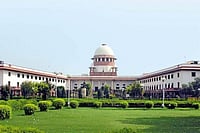Patients who have just recovered from Covid-19, especially those with severe infection, have reduced lung reserve. In these patients, even mild exposure to air pollution can lead to worsening respiratory distress. Even more dangerous is the fact that air pollution leads to reduced lung clearance. If someone suffers a new Covid-19 infection, their recovery may be delayed and milder Covid-19 may become fatal.
Says Dr Vipul Rustgi, MBBS MD Medicine, Consultant Physician and Diabetologist, Apollo Spectra, Delhi, “The patients who have just recovered from Covid-19 should strictly avoid coming in contact with polluted areas as air pollution is poisonous to health. Even though you are out of Covid-19, it takes a specific period for your immunity system to totally recover after deteriorating during the infection. Hence, exposure to polluted air soon after recovering from Covid-19 increases the risk of the virus entering your body by attacking your respiratory system.”
When we breathe in polluted air, we bring these pollutants deep into our lungs, so it’s no surprise that air pollution causes serious damage to the respiratory tract, especially to the lungs. It can trigger new respiratory diseases or worsen pre-existing conditions. Air pollution also seriously harms lung development. Thus, children, if exposed, are at high risk of developing asthma and other respiratory problems later in life.
Dr Ravi Shekhar Jha, additional director and head pulmonology, Fortis Hospital, Faridabad says, “Outdoor air pollution leads to 4.2 million deaths every year. Outdoor air contains many pollutants but the most harmful are particulate matter, nitrogen dioxide and ozone.”
Deterioration of air quality is causing complications in patients who have recovered from Covid-19. Dr Jha mentions that he had a 58-year-old patient who was admitted for around one month in the hospital for Covid-19. She received high doses of steroids and developed several complications, including two episodes of invasive fungal infections. The woman continues to feel breathless with exertion, is on occasional oxygen burst therapy, and has been facing a lot of anxiety issues. The patient is also on a prolonged course of antifungal drugs which have their own side effects. And now, because of the pollution, her oxygen saturation has gone down and she is more breathless than usual.
Asthma, Dr Jha explains, is a chronic inflammatory disease of the lungs, which are hypersensitive to exposure to any noxious particle or gases. Many young and productive people die across the world due to fatal asthma attacks. Poor air quality is one of the common reasons for asthma attacks, therefore asthmatics need to be extra careful. Ozone, an important and dangerous chemical found in polluted air, is particularly common in urban air due to industries. Ozone is one of the most dangerous triggers for asthma attacks. COPD is another disease that is similar to asthma and is characterised by narrowed airways. Bad air can fatally damage the respiratory system and may lead to respiratory attacks.
Bad air can also lead to pneumonia. Pollutants damages lungs in such a way that their defence line, which means the mechanism that clears our lungs from secretion, is damaged. This leads to retained secretions and fatal pneumonia, especially in the elderly and kids. Lung cancer has been linked with bad air for a pretty long time now. More and more lung cancer cases are being diagnosed in the younger population, who have never smoked. The majority of these are attributed to high air pollution.
Long term effects on lungs, especially in kids
Research also shows that prolonged exposure of children to air pollution can adversely affect their lung development. Prolonged exposure to air pollution in kids can also lead to asthma and COPD, and that’s one of the reasons we are noticing lung cancer in the younger population. Kids also tend to ignore early asthma attack symptoms, which may lead to fatal attacks.
“Most of the kids have this habit of mouth breathing, due to which they bypass the natural nose filter," Dr Jha says. "This leads to more pollutants going into lungs. Kids spend a longer time outdoors, leading to more exposure. Research suggests that long-term exposure to air pollution can contribute to the development of severe lung conditions. There’s good evidence that outdoor air pollution contributes to lung cancer and it’s possible that long-term exposure to air pollution in kids is linked to the development of asthma.”
According to Dr Rustgi, the immunity power of children is not as strong as adults. "Hence, they are at more risk as far as air pollution is concerned. “Instead of exposing them to polluted areas, parents can make a regular routine for them to visit nature-friendly places for a walk or cycle rides and to breathe fresh air. They should also urge kids to use more energy-efficient and eco-friendly products," he says.
Pollution and elder citizens
As we grow old, the functioning of the body organs slows down, affecting our immune system. This leads to more risk of coming in contact with viral infections. The potential of the lungs to filter the clean air slows down with the growing age. This could lead to various health issues when exposed to bad air for long periods. Senior citizens should, therefore. avoid exposing themselves to polluted areas. Practising light exercises like yoga and meditation will help to keep them fit.
Says Dr Sangita Chekker, Consultant Chest Physician, Wockhardt Hospital, Mumbai, “Though the air pollution is harmful to everyone, it is more impactful for senior citizens. Ageing affects the functioning of body organs and the immunity system, leading to more risk. The lungs of the aged citizens have a lower potential of filtering the clean air and throwing out the pollutants from the body. Hence, inhaling the polluted air may lead to various health issues. Seniors should avoid polluted areas at all costs and should practice meditation and light exercise or yoga to keep fit.”
Nutrition
Experts suggest that carotenoids, Vitamin D, and Vitamin E help protect against pollution damage which triggers asthma and other respiratory issues. Vitamin C, Curcumin, Choline and Omega-3 fatty acid also play protective roles. The Mediterranean diet appears to be of benefit to airways, though the evidence is not very strong for air pollution protection. It is important to keep yourself adequately hydrated and take a high fibre diet.
How to stay safe?
On high pollution days, the best thing you can do to reduce your exposure to air pollution is to avoid main roads and busy streets where possible. If you have a lung condition or have children, this is even more important.
On days when pollution levels are low, you don’t need to be worried about going outside. Children shouldn’t be stopped from going to school or taking part in games. But even on these days, it’s a good idea to avoid spending long periods of time in places where pollution levels build up, such as busy roads – particularly if you have a lung condition.
As air pollution levels rise, people with lung conditions are at an increased risk of becoming ill and needing treatment. If you or your child has a long-term lung condition, it’s sensible to take extra precautions on these high pollution days:
• Reduce or avoid strenuous, outdoor exercise. If you have a lung condition, exercise has many benefits, so if possible, keep doing your exercise indoors in a well-ventilated room or gym.
• Stay away from pollution hotspots such as main roads and busy road junctions.
• Try to get to work a little earlier before the rush hour has begun and levels of pollution have built up.
• Make sure you carry your reliever inhaler with you if you use one.
• If you have asthma, use your preventer inhaler regularly.
If you find your condition is getting worse, or if you’re getting wheezy or coughing from walking outside, get in touch with your doctor.
Anyone who experiences discomfort such as sore eyes, a cough or a sore throat should consider reducing their levels of physical activity outdoors.





















_(1).jpg?w=200&auto=format%2Ccompress&fit=max)




